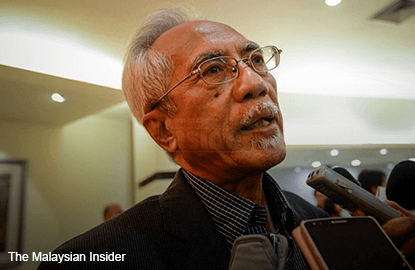
(Aug 6): Datuk A. Kadir Jasin today accused Prime Minister Datuk Seri Najib Razak's spin doctors of dragging down the country's institutions in their efforts to defend their boss, even as the country reels from a weakening ringgit and rising cost of living.
Writing in his blog, the veteran newsman said the spin doctors, whom he identified as the mainstream media, "bangang" bloggers and Najib's "tukang cerita" (story teller) – although he did not name who he meant – are demonising everything and everyone deemed a threat to Najib.
This included the Attorney General's Chambers, the Malaysian Anti Corruption Commission (MACC), the police and Bank Negara Malaysia, the four institutions that are probing into Najib's brainchild, the 1Malaysia Development Berhad (1MDB) and entities linked to it.
"They have succeeded in discrediting, demoralising and fracturing the AG's Chamber, the MACC and the police. Now they are attacking Bank Negara.
"Yet by demonising these institutions and their leaders, these spin-doctors acknowledge that these personalities and institutions are more credible and trustworthy than the government led by Najib.
"Their slash and burn tactics affirms their suicidal temperament. To them, if Najib does not survive, then nobody should – not even the country," he said.
In the meantime, the former New Straits Times Group editor-in-chief said all indicators pointed towards the growing contagion of 1MDB and a weak government.
This included the weakening ringgit, which has declined to a 17-year low against the US dollar as of August 3.
Bank Negara foreign reserves had declined by more than US$40 billion to just over US$100 billion, the lowest in 5 years, partly in support of the ringgit.
"That amount could have been better spent pre-paying debts. Lower debts mean stronger ringgit," Kadir said.
He also noted that locals and foreigners are taking their money out, with an estimated RM11.7 billion departed from Bursa Malaysia this year, compared to RM6.9 billion for the whole of last year.
On top of that, the Goods and Services Tax (GST) which Putrajaya rolled out in April, as well as the weak commodity prices, had affected the livelihood of Malaysians, he said, pointing out that household income of palm oil and rubber smallholders had fallen, while prices of goods and services, as well as inflation are on the rise. – The Malaysian Insider